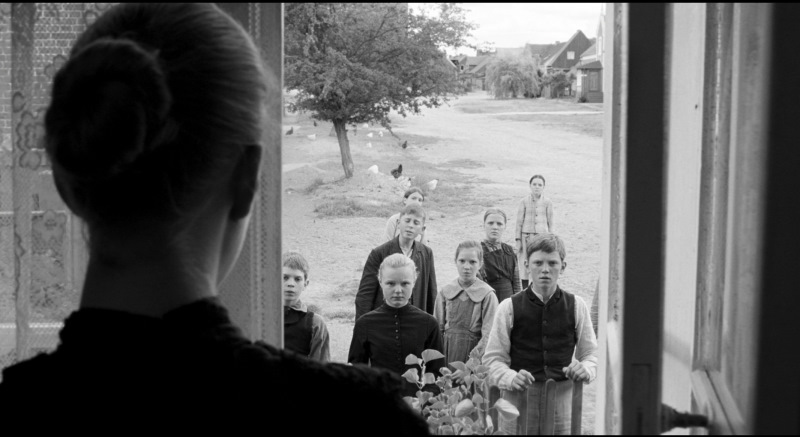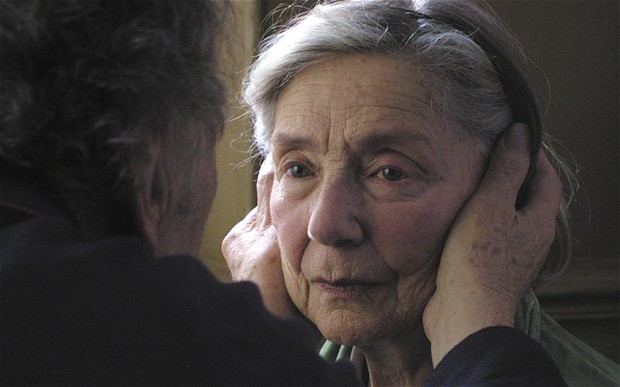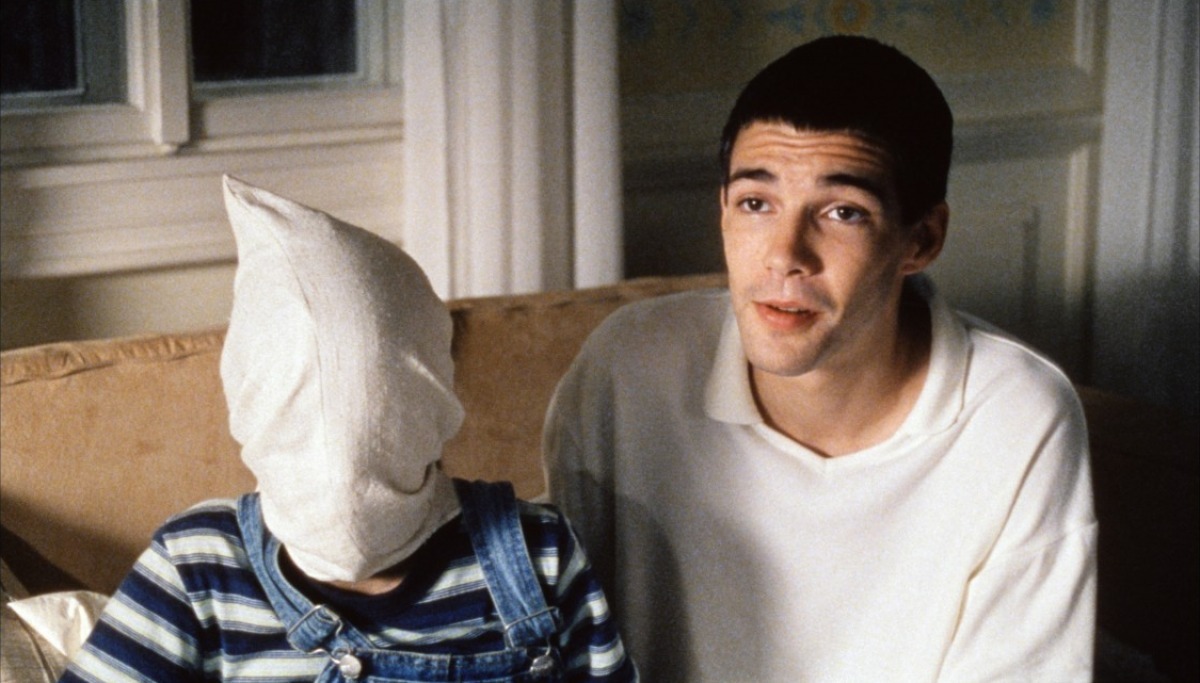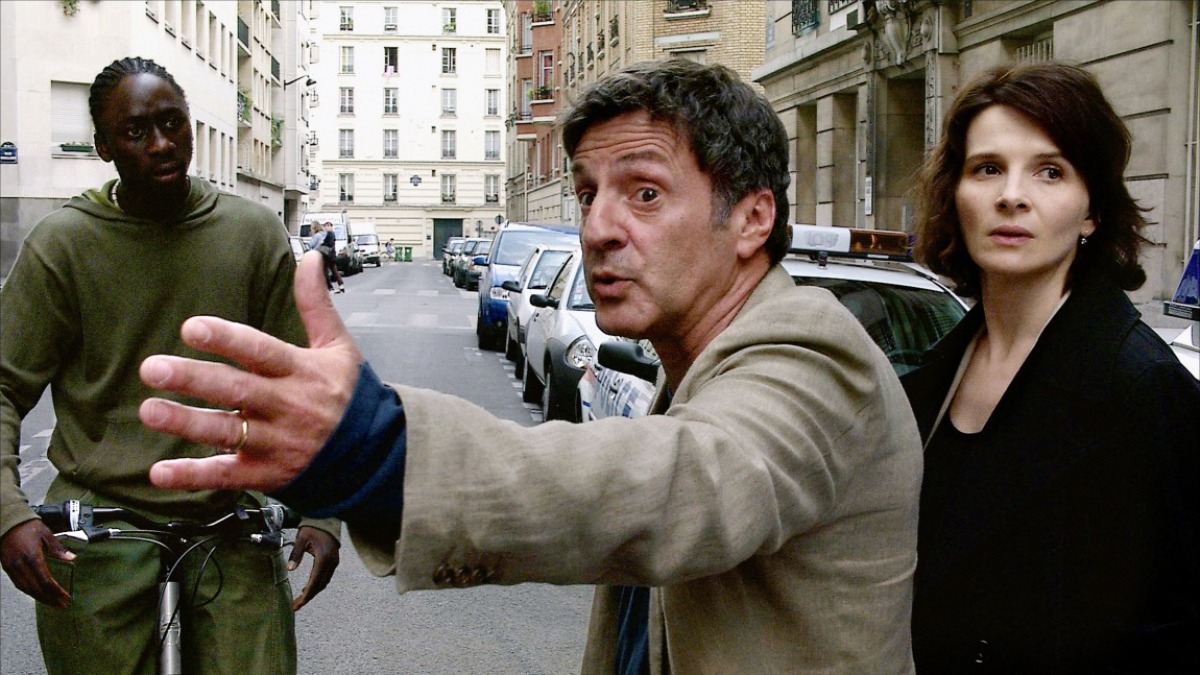5. Benny’s Video (1992)
The second film in Haneke’s Glaciation Trilogy, Benny’s Video follows Benny (Arno Frisch) a German teenager who is ignored by his busy parents, Anna (Angela Winkler) and Georg (Ulrich Mühe) and so spends his time locked away in his room watching violent films and shooting his own videos of the world around him.
Benny revels in escaping to this visual fantasy world, which he finds much more interesting than reality. Benny invites a girl to his house (Ingrid Stassner) to watch violent movies but after being provoked, he murders her with no show of emotion. Benny’s parents find out about the tragic event and after realizing they are in danger of being arrested, take the disposal of the body into their own hands, leading to unexpected consequences.
Benny’s Video is a cautionary exploration of the disconnection and dehumanizing effect that media violence can wreak on human beings.
Like many youths in today’s media-saturated culture, Benny has become desensitized to violence, both in real life and on-screen. He is fascinated with and un-phased by the violent images he watches on screen which puts him in the dangerous position of blurring the lines of reality and fiction. Benny’s Video is a disquieting look at the moral and ethical consequences of a world obsessed with violent media.
4. Das Weisse Band [The White Ribbon] (2009)
Das Weisse Band follows the everyday lives of the residents in a quiet but repressed rural Protestant village in pre-WWI Germany. Suddenly a series of bizarre and malevolent incidents begin occurring – a farmer’s wife dies, a local doctor is injured, children are abducted, crops and property are destroyed – and nobody knows who is responsible for these events or the motivation behind them.
As a result, a climate of fear sweeps over the town and it is the children who are presumed guilty of these crimes, and are subsequently punished severely. Are these acts of spite or merely tragic accidents?
Das Weisse Band is a perplexing and mysterious film which asks us to think about the evils and secrets of the past, but ultimately gives us no insight or answers. We never find out who instigates these incidents or why they happen.
Are they a result of the town’s children revolting against their strict and violent upbringings or are the children not involved at all? Is this a precursor to the kinds of human agency which led to the horrors of the Nazi regime or, as the film’s narrator (Ernst Jacobi), implies, could these events “perhaps clarify some things that happened in this country?”
This is Haneke’s only film shot in black and white, but this is visually beautiful and adds great depth to the film’s historical feel as well as the impending sense of dread.
3. Amour (2012)
Haneke’s latest and arguably most restrained film, Amour follows long-married retired music teachers, Anne (Emmanuelle Riva) and Georges (Jean-Louis Trintignant), and their content married lives in their autumn years.
When Anne suddenly has a stroke which incapacitates her physically and mentally, the responsibility is put on her husband to care for her every need. Georges obliges out of his loving devotion to Anna yet his frustrations grow as the beloved woman he fell in love with turns into a shell of her former self, at the hands of this cruel disease.
Amour is a raw and unadulterated look into the human condition, the power of love and the heartache that is involved with the inevitability of aging, deteriorating and death.
Anyone with family members in Anne’s position can surely understand the difficulty and harrowing emotions involved in watching a loved one deteriorate right in front of their very eyes. Haneke’s depiction of the eternal struggle with accepting what is happening while still trying to preserve the dignity and the memories of happier times is simply heart-wrenching.
Despite the depressing and all-too-real narrative, the wonderful performances and simplistic story make this film incredibly moving and must-see viewing.
2. Funny Games (1997)
In this radical and provocative thriller, a well-to-do couple Georg (Ulrich Mühe), Anna (Susanne Lothar) and their young son Schorschi arrive at their lakeside holiday home, only to have it invaded by two ultra-polite men dressed in white, Paul (Arno Frisch) and Peter (Frank Giering).
Despite their pleasant demeanor, these young men turn out to be sadistic homicidal psychopaths who want to play violent ‘games’ with the family – terrorizing, brutalizing, torturing, and eventually killing them. Their innocent family holiday turns into a nightmarish vacation from hell.
Funny Games sets out to critique film audiences’ consumption of on-screen violence and the lasting physical and psychological effects of watching it. The perpetrators in the film are completely sadistic and no explanation is given for the pleasure they gain from making the family suffer.
Like the killers themselves, we are enjoying witnessing their vicious treatment of the family – but why do we enjoy it? The film satirizes the representation of violence in mainstream Hollywood media by subverting the usual conventions of a thriller – in one scene for example, reality is abandoned when the killers use a television remote to ‘rewind’ a scene when things don’t pan out for them.
Interestingly, most of the violence happens off-screen, so it is up to us the audience to imagine what is happening, while at the same time pondering our pleasure in watching violent acts on screen.
1. Caché [Hidden] (2005)
In this Hitchcockian psychological thriller, paranoia grips a bourgeois French family when a series of anonymous and mysterious surveillance tapes of their home accompanied with morbid drawings appear on their doorstep.
At first Georges (Daniel Auteuil), Anne (Juliette Binoche), and their son, Pierrot think nothing of these packages, perhaps they are a sick prank, but as the footage on the tapes becomes more unsettling and more personal to Georges, he begins to suspect something more sinister.
The tapes eventually lead Georges to track down childhood friend Majid (Maurice Bénichou) and predatorily scrutinize his involvement in the tape-sending saga. The events which follow unsettle George’s family and unravel his life, as his secret past and guilt come back to haunt him.
This compelling politico-psychological film deeply explores the denial and guilt of George over his past actions, and allegorically, the guilt and denial of French society over their involvement in their occupation of Algeria.
The film is very suspenseful and enigmatic, leaving the speculation of the identity of the sender of the tapes up to the viewer. But perhaps the most interesting and unsettling voyeurism of the film is the constant changing of viewpoints.
As an audience, we are never sure who’s point of view we are watching the film from – Georges, Majid, the mystery sender of the tapes or classic meta theory – is it indeed Haneke himself? It may be that Haneke is merely using his cinematic prowess to tease and intrigue his audience.
Author Bio: Sophie completed her Masters Degree in Creative Arts at Monash Univeristy, Melbourne. She loves everything about film but her passion is for extreme horror films, foreign and independent cinema and art film/avant garde films.




